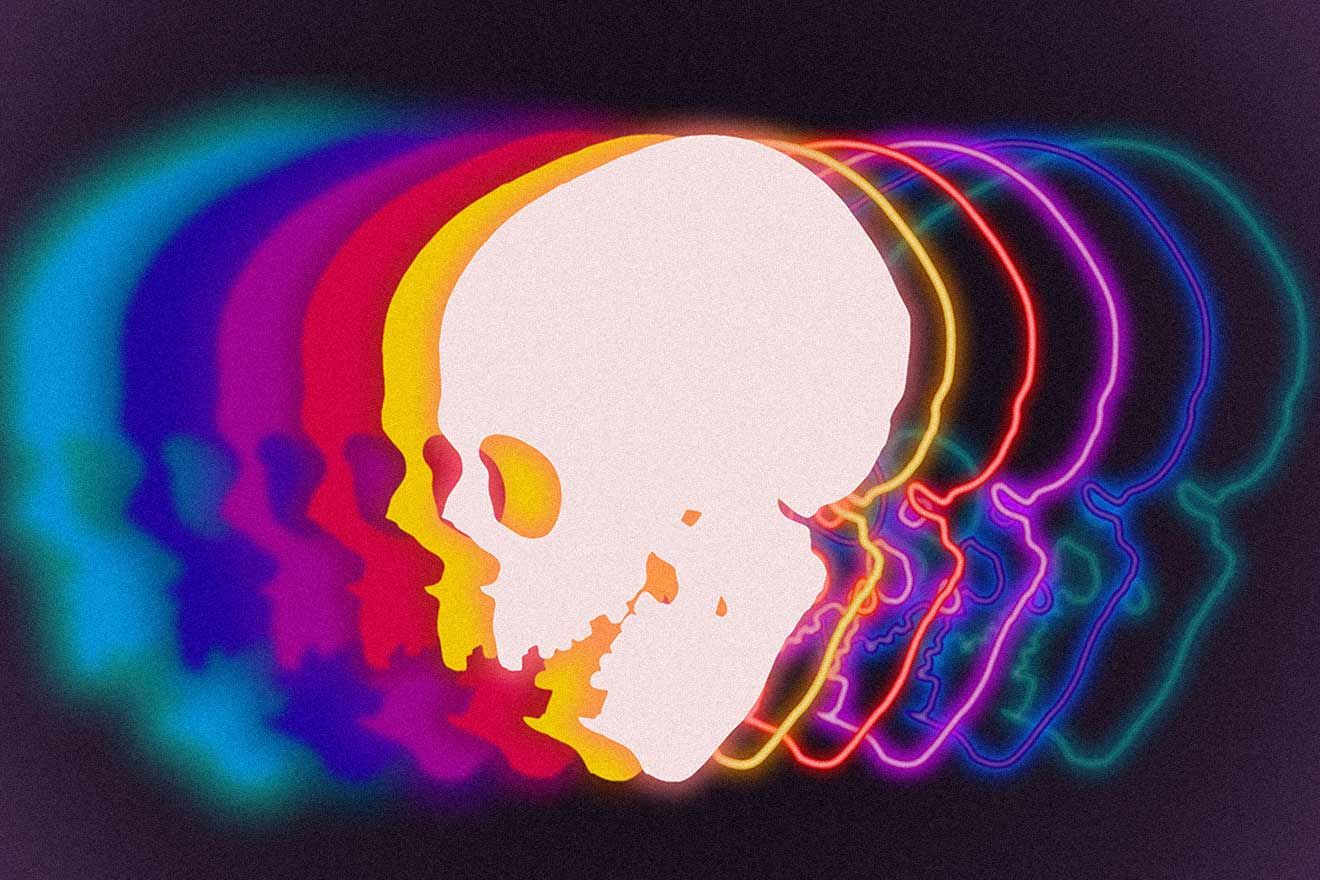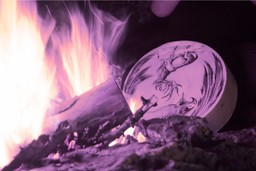While plant medicine can be deeply healing, it also has the potential for harm. Join Nina Izel as we learn about some of the risks – and strategies for safety – of working with plant medicines.
This article explores:
- The abuse of money, sex, and power in psychedelic-assisted therapy
- Predators exist; how to recognize them
- Identifying the red flags
- How to stay safe during your plant medicine healing journey
The Plant Medicine Renaissance
We are experiencing a psychedelic renaissance right now in the West.
Undoubtedly, in the past 20 years, the research, use, and legalization of some entheogens (like magic mushrooms or cannabis) have kept growing and spilling over into mainstream medicine.
There is promising research showing the benefits of certain psychoactive substances, easing the suffering of chronic disease, mental illness, and death.
A growing number of people are traveling from the West to Central and South America to participate in shamanic retreats and work with psychoactive plants such as Ayahuasca, Wachuma, Iboga, and more.
Cultural Differences in Plant Medicine Spaces
One challenge is that most people in the West lack history, knowledge, culture, and experience regarding these plants and how to use them.
Most of us are not familiar with the term shaman and don’t understand how a spirit in a plant can help to heal our cancer, for example.
Follow your Curiosity
Sign up to receive our free psychedelic courses, 45 page eBook, and special offers delivered to your inbox.We read the miraculous stories on social media about how some people’s lives changed after an Ayahuasca retreat, and we think we have finally found the magic pill.
While I believe these plants are powerful allies in our healing and awakening, I am also aware of the nature of duality- where there is light, there is a shadow.
While the healing light of these medicines is widely celebrated, as it should be, the shadows are often ignored.
Where There is Light, There is a Shadow
So, let’s look at that shadow of plant medicines so that we can learn and educate ourselves on how to use these power plants in a sacred, conscious, and responsible way.
The general shadow aspect of any profession in society is the abuse of money, sex, and power, with sexual abuse being the most common breach of ethics in a therapeutic setting. Holistic healing and plant medicine work is not an exemption from this, sadly.
When you go to Peru or Costa Rica to participate in an Ayahuasca retreat (or Kambo, Bufo, or San Pedro), you enter uncharted territory. First, you are out of your comfort zone, out of the familiar, and maybe you don’t even speak the language. Second, you are embarking upon a journey that you know nothing about with people you don’t know and have never met.
Beware of the Shaman’s Spell
Most of us want to trust people, especially when they use words we want to hear and promise things we deeply desire. We naturally look for guidance when we are in the unknown and feel afraid and insecure. On top of that, when we are on a healing journey, we can be in pain, triggered, sensitive, and overwhelmed; in other words, we are in a vulnerable state. Under these circumstances, we can be easily influenced, sometimes manipulated or exploited.
We must remember that predators do exist and can sometimes take the form of a shaman or healer.
Sometimes, we can fall into a shaman’s spell, seeing what we want to see, a powerful, magical, perfect being: Shaman, Healer. We must remember that when we meet a shaman, we only see part of reality because we don’t know anything about their life or reputation in their community. It can be hard to discern who we are really seeing and what kind of ‘powers’ they have, especially when we don’t know about anything related to shamanism or plant medicine.
Do Your Research / Preparation for the Journey
I desire to help you discern and recognize the red flags so you can find a safe place/people to work with these power plants if you are called to do so. The following guidelines help you discern between people who are truly in service to others and people who use their power for self-serving purposes.
The most important thing is not to give your power away thinking that shamans and gurus are perfect or superior or God-like. Instead, use your logic and reason combined with your intuitive guidance to find out what serves you and what is not in your best interest.
The Reputation of a Healer/Shaman/Retreat Center
When you choose a place or person to lead you on this plant medicine journey, you can do a little background check and personally connect with people who can provide you with more information on the place or people you want to work with. These include former participants, the staff/leader of the retreat or ceremony, and community members where the retreat/ceremony is taking place. Please do not rely on just one source of information or book a retreat based on a flyer you saw on social media.
Informed Consent
Every place/shaman/healer with integrity has a client intake process. This usually consists of a written intake form you fill out about your background and medical history and also a verbal consultation to discuss specific needs and desires. In addition, there has to be a signed agreement about the duties and responsibilities of both the client and the shaman/healer/retreat center, including pricing, number, and duration of sessions and ceremonies. Performing any healing, ceremony, or ritual without informed consent can be potentially harmful and dangerous.
Transparency, Integrity
Choosing a place/people with integrity is paramount, but what does integrity mean?
Integrity means saying what you think and doing what you speak of; in other words, leading by example. Often, people say something but then do something completely different. Being in your integrity means bringing your thoughts, words, and deeds into alignment. Transparency means being open about your life; not much is hidden or secret. In general, more transparent people have less to hide.
For me, what makes a shaman/healer with integrity is somebody who uses their power consciously and responsibly for the benefit of all. As I mentioned, the most common pitfalls in life (and in plant medicine) are the misuse of money, sex, and power. To know somebody on a deeper level, we can look at their relationship with money, sex, and power to have a more accurate picture of who they really are.
Service to Others
Some people can be described as in service to self, while others are in service to others. This means that the service-to-others people are constantly working with the intention to serve the highest good of all and uplift the collective. These people usually lead a life of example and have a high reputation within their community. For obvious reasons, when looking for healing and higher guidance, you want to work with a person of integrity, ethics, and service to others.
On the other hand, service-to-self people put themselves above others and consider their needs to be of utmost priority, even to the detriment of others. Some harm people out of selfish ignorance, not being aware of the consequences of their actions, while others can cause harm intentionally. We call this black magic in the shamanic context. Shamans/healers/way showers who use their power to inflict harm are creating a portal to the lower realms (lower astral worlds) where we can easily get lost or attacked.
Red Flags and Inner Guidance for Plant Medicine
When we talk about the abuse of power, there are always some red flags. But what happens is that we often ignore these signals (gut feelings, intuition, doubts, and questions) and allow others to tell us what is best for us. How frequently have you heard – I should have listened to my intuition?
Our intuitive guidance is a message from our higher self to help us navigate safely. This aspect of us first recognizes those red flags and sends an internal alarm signal.
The best service you can do for yourself is to tune into your intuitive guidance and learn to follow that.
The following list of common red flags in the plant medicine healing space to bring more awareness and healing to these shadow aspects.
- Sexual relations between participants, healers, clients
- Being told that having sex with the shaman will give you special powers
- Asking clients to undress and touching them without consent
- Manipulation, disempowering people, attacking people when they are most vulnerable
- Shaming, humiliating, and threatening people in a healing container
- To be asked to go for a private session with the shaman/healer
- Being told that you are unique and have special powers, you are better than others, and you need special attention (grooming)
- The use of additional psychoactive plants outside of the ceremony (especially in a private setting)
- Being told you have a special problem will require extra work/ceremony/sessions, which will cost extra money outside of the agreement.
- Gaslighting (convincing victims that nothing really happened or that what happened was part of their healing and happened for their own good)
- Feeling very confused by the healer/shaman, feeling unsafe with the healer/shaman
- You are constantly doubting yourself and your decision to continue with your experience.
The Shadow of the Participants/Clients
We are all divine, but no human is perfect. Sometimes, participants/clients can also be abusive in a healing container. Sometimes, things get overwhelming in a healing process, and participants/clients can lose awareness and project their shadow onto others. Occasionally, people feel that they didn’t receive what they were looking for, which is the healer/shaman’s fault. Some can feel disappointed or even angry, and accusations can happen that do not reflect the whole reality of the situation.
The Abuse of Power in Plant Medicine Spaces
Abuse can be spiritual, mental, psychological, emotional, physical, economic, not only sexual. If you believe you are or have been experiencing abuse in a healing container, speak out and voice your concerns. Ask for support and listen to other people’s perspectives to get the whole picture.
All reports of abuse have to be taken seriously but also need to be further investigated to clarify what exactly happened.
Awareness is the Key
Assuming the best or the worst of people will create a limited perspective. We need to step back and rise above to get the bigger picture. Here, we have a more accurate assessment of reality. This simply means observing people and how their actions and words align, asking questions when in doubt, and thinking about other people’s motivations and expectations when making a decision.
We all have areas that are susceptible to exploitation or prejudice, and we are all biased toward seeing what we are visiting. But when we align with our hearts and become present in our bodies, we can feel/know what is true and what is not.
Plant medicines are potent allies that aid us in our healing and awakening. But like any tool, they can be used for good or evil. The intentions, awareness, and desires of the people who use these sacred medicines will determine what we create: more light or shadow.
What will you create?







